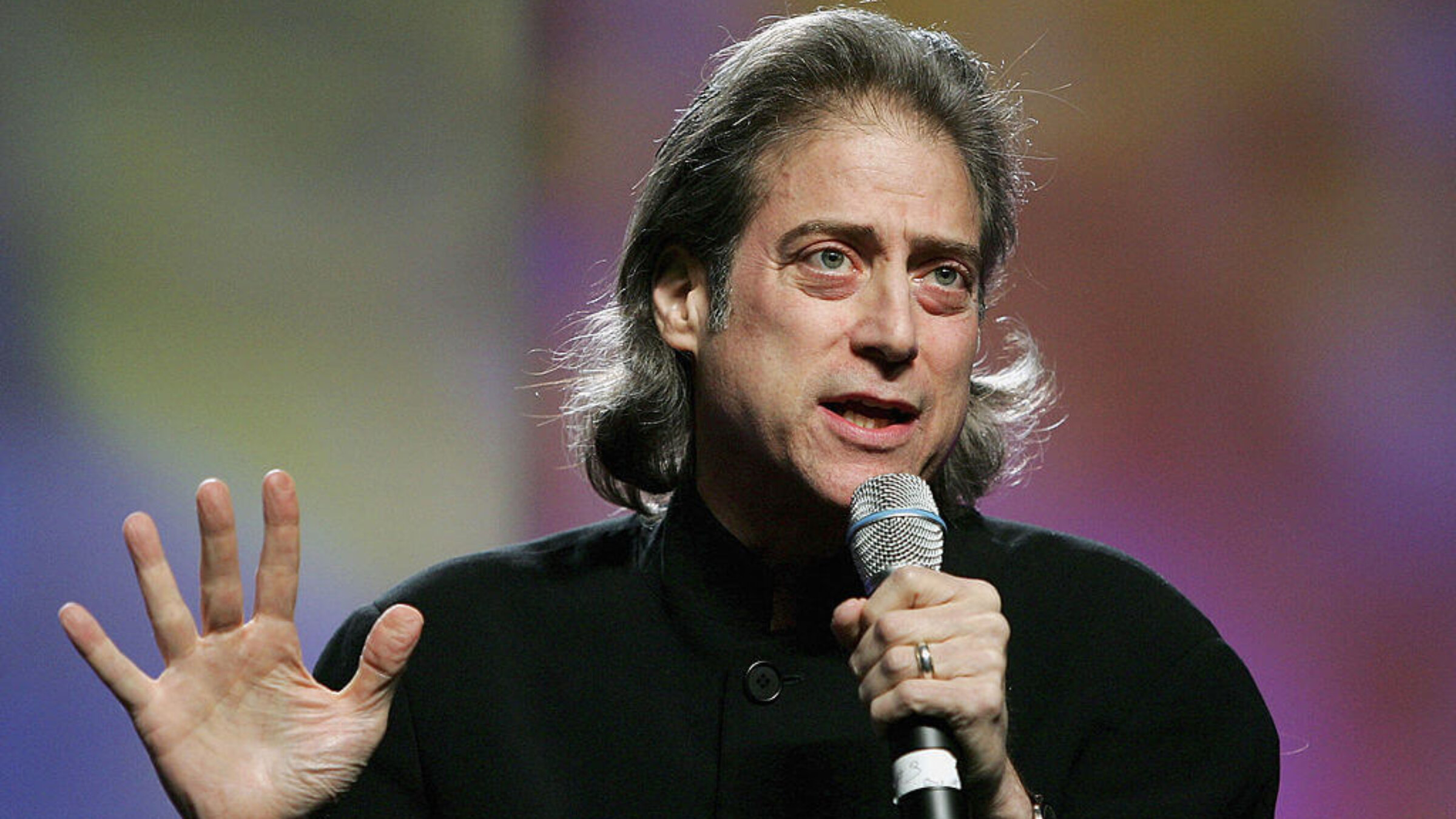Richard Lewis’ life was not ‘from hell’
The legendary comedian and ‘Curb Your Enthusiasm’ actor has died at 76

Comedian/actor Richard Lewis hosts the Video Software Dealers Association’s award show at the organization’s annual home video convention at the Bellagio July 27, 2005 in Las Vegas, Nevada. Photo by Ethan Miller/Getty Images
Richard Lewis once fought to have the idiom he coined included in Bartlett’s dictionary of quotations.
It was he, he maintained with the help of a lawyer, who first dreamed up the formula “the __ from hell,” be it a girlfriend, night, or an unpleasant airplane trip. It entered the common lexicon, but Bartlett’s refused to give him credit. His battle for recognition was later dramatized on Curb Your Enthusiasm, where he played a version of himself based on his real-life friendship with creator Larry David. (They met at camp and hated each other instantly.)
Lewis, known for wearing all black, his stand-up and his starring roles in films like Robin Hood: Men in Tights, died Tuesday night. A publicist told The Hollywood Reporter he suffered a heart attack. He was 76.
Lewis had been sick for sometime, with David often making light of his health problems on Curb, asking him, in a recent season, “When are you gonna die?”
It’s a testament to Lewis’ humor that he took the joke in stride.
Born in Brooklyn to a Jewish family, Lewis was raised in Englewood, New Jersey. His father, a caterer, made a good living but was not very present.
“My dad was such a successful caterer that he was booked on my bar mitzvah, and I had my party on a Tuesday,” Lewis recalled in a 2015 interview. “Talk about low self-esteem.”
Lewis would later channel his neuroses and his twitchy, undeniably Jewish self-deprecation into a successful stand-up career. He later got a go at acting in 1979, staring in Diary of a Young Comic as Billy Gondolstein, who wants to change his name to “Gondola” and make it big in Los Angeles.
In the 1980s and ‘90s, Lewis began appearing on talk shows like Late Night and The Tonight Show with David Letterman. (It was on Letterman’s show that Lewis often said his usage of “___ from hell” originated and took off.) In 1993, Lewis starred as Prince John in Mel Brooks’ Robin Hood: Men in Tights, perhaps the best part of the film.
Lewis’ stand-up specials, which he self-produced on cable, endeared him to audiences and led to sold-out concerts, but it was perhaps his relationship with David, stemming from their long-ago acrimony at camp, that provided some of his most memorable performances and most consistent work over 12 seasons of Curb Your Enthusiasm, including an arc where David — after going through great lengths to avoid it — ultimately donates a kidney to Lewis. In what was reportedly Lewis’ final scene in Curb‘s current and alleged final season, he told David he was including him in his will, a gesture David objected to by paraphrasing General William Tecumseh Sherman’s vow not to run for president.
In a statement shared with Variety Wednesday, David said “Richard and I were born three days apart in the same hospital and for most of my life he’s been like a brother to me. He had the rare combination of being the funniest person and also the sweetest. But today he made me sob and for that I’ll never forgive him”
Lewis revealed his diagnosis with Parkinson’s disease last year in a social media post, in which he also said he had retired from stand-up.
“I love my wife, I love my little puppy dog and I love all my friends and fans,” Lewis said at the time.
In a 2012 interview with The Forward, Lewis shared that his life was “one big Curb episode.”
It was a good life and a better legacy — decidedly not one from hell.
A message from our CEO & publisher Rachel Fishman Feddersen
I hope you appreciated this article. Before you go, I’d like to ask you to please support the Forward’s award-winning, nonprofit journalism during this critical time.
We’ve set a goal to raise $260,000 by December 31. That’s an ambitious goal, but one that will give us the resources we need to invest in the high quality news, opinion, analysis and cultural coverage that isn’t available anywhere else.
If you feel inspired to make an impact, now is the time to give something back. Join us as a member at your most generous level.
— Rachel Fishman Feddersen, Publisher and CEO